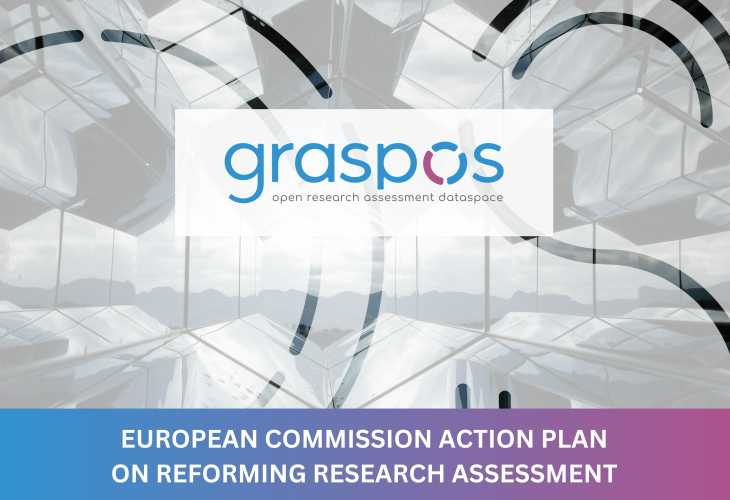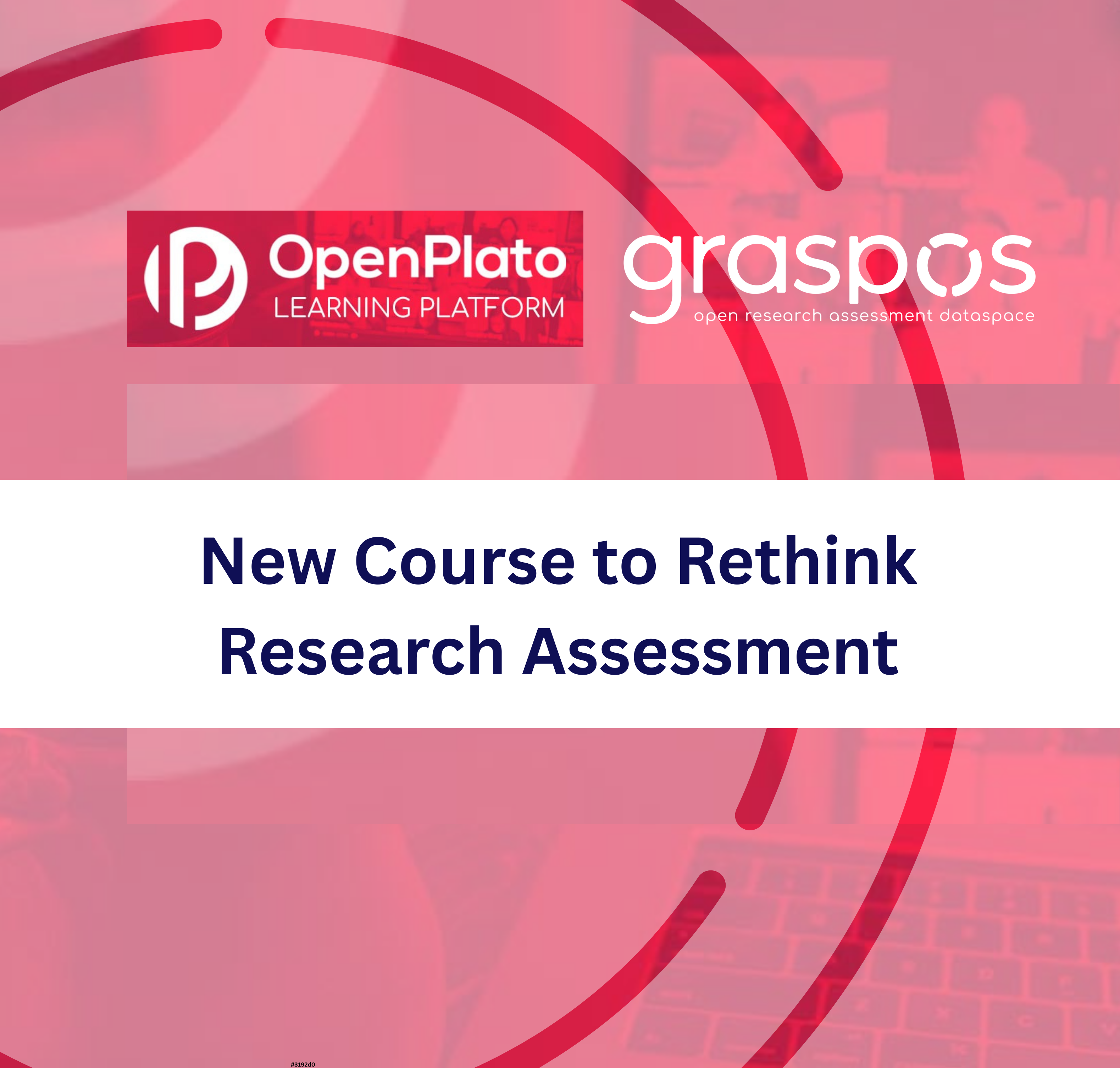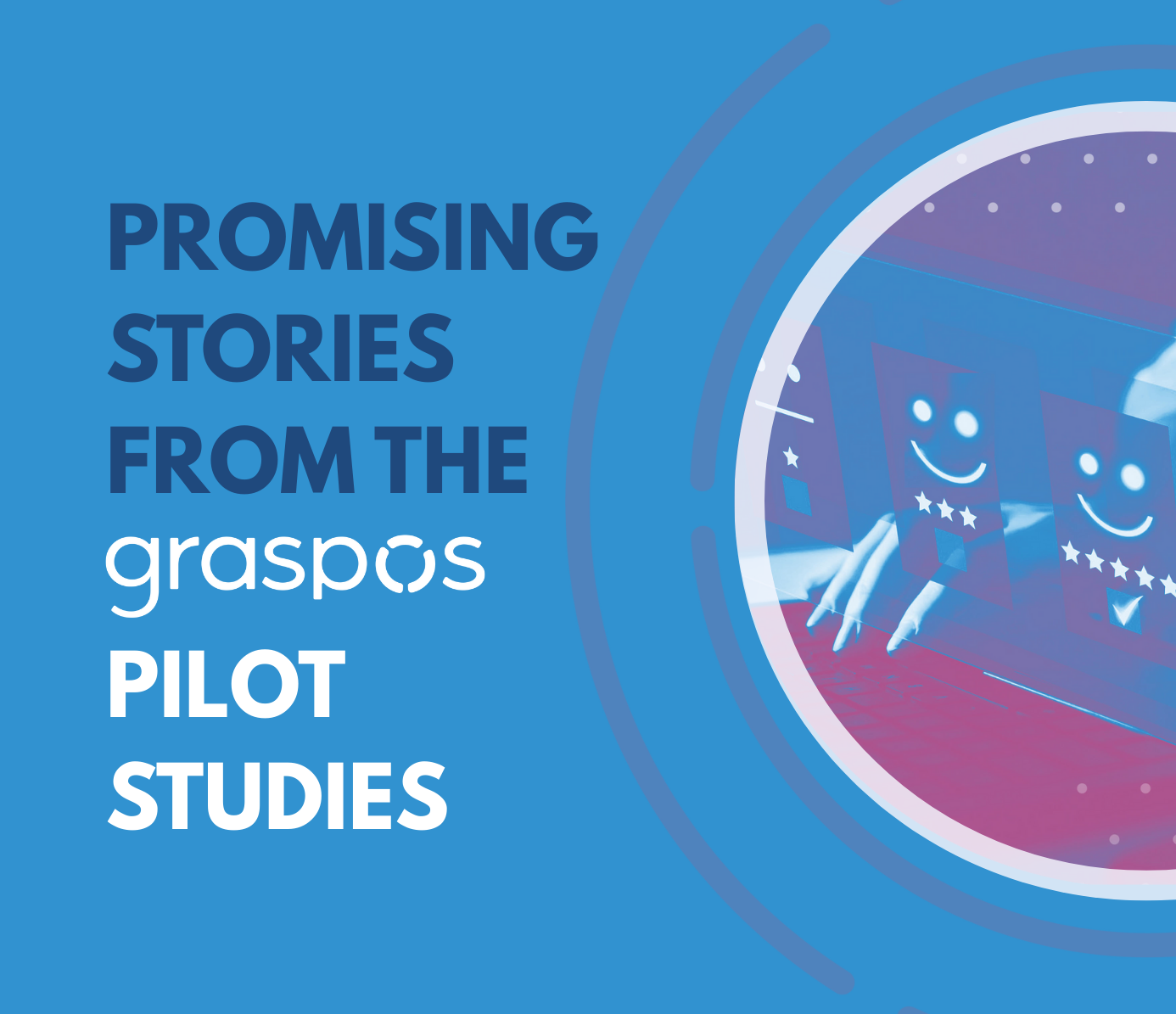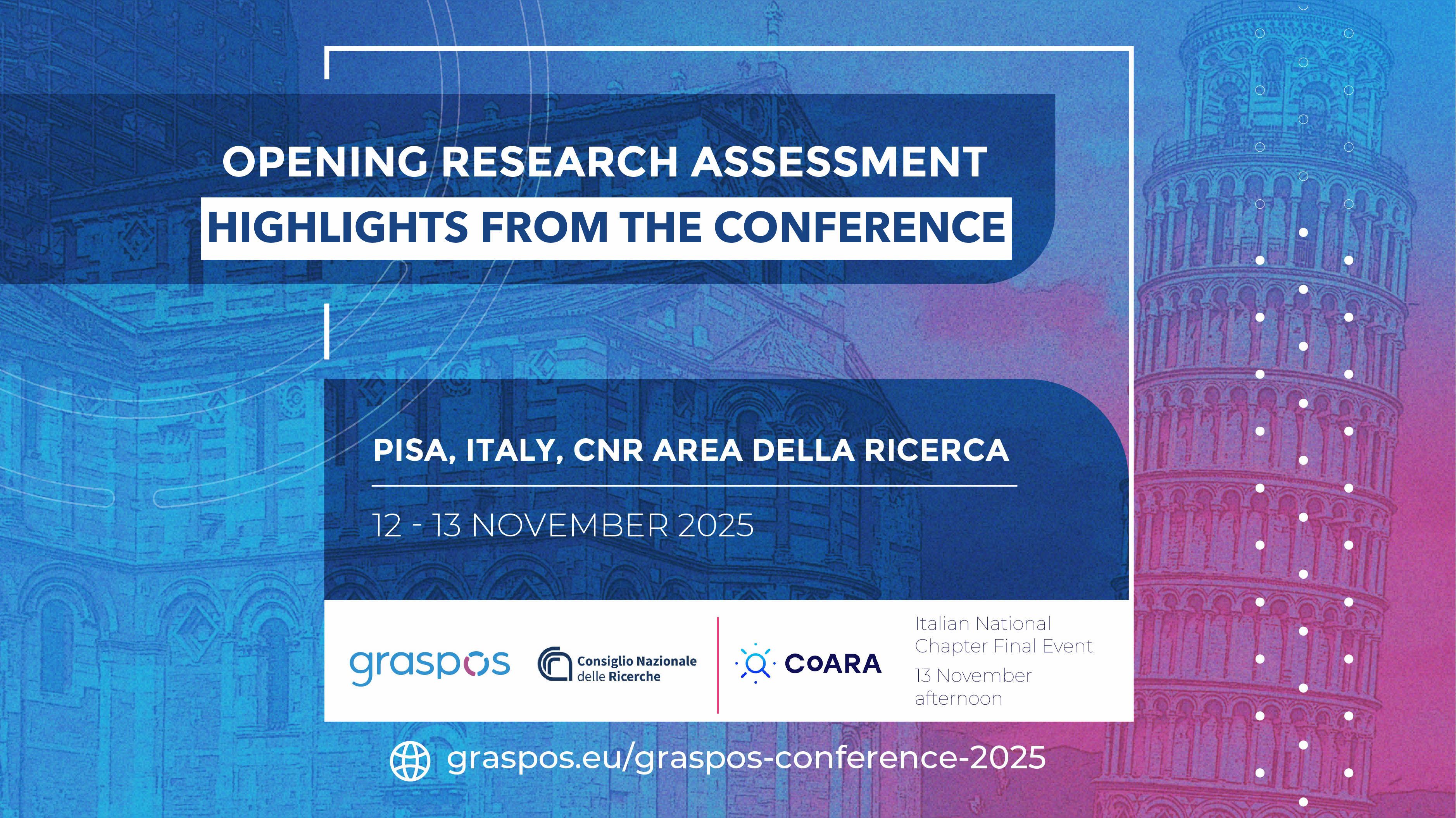European Commission Action Plan highlights the role of GraspOS in advancing the research assessment reform

The recent Action Plan by the Commission to implement the ten commitments of the Agreement on Reforming Research Assessment (ARRA) recognises the GraspOS project as one of the particularly relevant initiatives to advance the research assessment reform.
The Action Plan, published in outlines the ten commitments contained in the ARRA*, highlighting ongoing EC actions to address each commitment, with plans to further their implementation in the next Framework Program for Research and Innovation (FP10).
The Commission has already taken steps to integrate a more comprehensive set of evaluation criteria into the Horizon Europe main Work Programme, assessing Open Science practices, gender considerations, and diverse research outputs. Looking at the future, the Commission has outlined a series of steps to further support and advance research assessment reform. This includes identifying potential improvements in evaluation criteria, enhancing guidance and training for peer reviewers, and fostering mutual learning through collaborations like the Coalition for Advancing Research Assessment (CoARA).
Several projects, including GraspOS, PathOS, OPUS and SciLake, have been identified by the Commission as key contributors to research assessment reform.
In this regard, the Commission has stated it will continue the mapping of research and innovation projects and coordination and support actions which contribute to the reform; identify how these projects contribute to CoARA and provide recommendations; and identify new research and innovation actions which are needed to advance the reform.
The recognition of GraspOS in the European Commission's report reasserts our key position in the process of shaping the future of research evaluation.
---
*ARRA Commitments summarised:
Commitment 1 emphasises the recognition of the diversity of contributions to research and careers. Commitments 2 and 3 focus on qualitative evaluation and abandoning inappropriate metrics like Journal Impact Factor and h-index. Commitments 4 to 9 stress the need to avoid the use of rankings of research organisations, to commit resources to the reform, to raise awareness and provide training on assessment criteria and processes, to exchange practices and communicate appropriately on progress made. Finally, Commitment 10 focuses on assessing practices, criteria, and tools using reliable evidence from research on research, ensuring that data are openly accessible for further investigation and research purposes.



